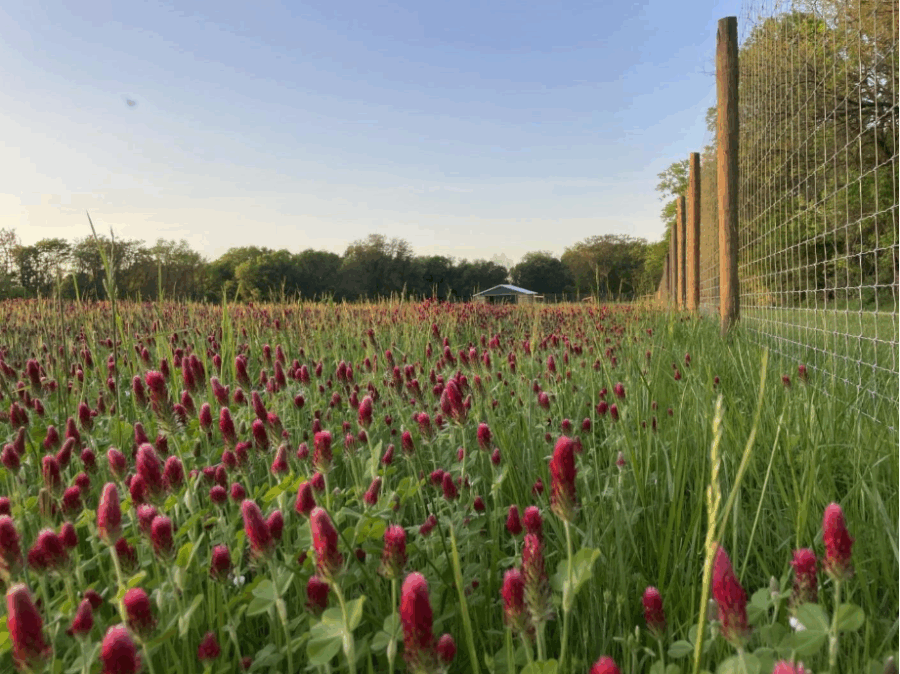Shepherd University to launch an Incubator Farm Program in spring 2026, providing beginner farmers access to land, equipment, and mentorship to start their own farm businesses.
“The Incubator Farm is a place to grow farmers,” said program coordinator Molly Sutter. “It gives people access to the big barriers for new farmers, like land and equipment. With the average farmer in the U.S. in their early 60s, it’s crucial we lower those barriers and make it possible to start a farm business, not just the farming part, but the business side, too.”
The program is supported by a federal Small Business Administration (SBA) grant secured through congressional-directed spending. West Virginia Sens. Joe Manchin and Shelley Moore Capito included Shepherd’s proposal in federal legislation, and the SBA funded it.
Dr. Jeffery Groff, professor of physics and environmental science, co-wrote the proposal with Dr. Brooke Comer and Dr. Peter Villa of environmental studies, calling the grant essential to the program’s launch.
“Without this grant, the incubator program would have been nearly impossible to launch,” Groff said. “It funded the construction of the new building, the seven-acre incubator site, and faculty time. The infrastructure we now have in place was 100% grant– funded.”
Groff added that while the funding focused on construction, it positions Shepherd to pursue additional support in the future. “It’s much easier to attract funding for programs once the facilities exist,” he said. “This gives Shepherd a stronger foundation to build on.”
Sutter explained that the program will provide more than just space and tools. Participants will meet weekly with her or the farm manager to troubleshoot problems, particularly in their first year. They will also attend workshops on business planning, marketing, and growing techniques, and will be connected to outlets to sell their products.
“The goal is for people to leave with a successful, established business,” Sutter said. “We’ll be walking alongside them, helping with everything from pest problems to finding outlets for their produce.”
The incubator will also benefit the wider campus and community. Students studying environmental science or business may collaborate with incubator farmers or apply after graduation, while local residents will gain from a stronger food system.
“It strengthens the connection between Shepherd and the local community,” Sutter said. “Having a robust local food system is good for people who eat food, but also for our economy. When things are local, they tend to be more sustainable and better meet the needs of the community.”
Sustainability is built into the program. Farmers will not be permitted to use chemical fertilizers or pesticides, protecting soil and waterways for future generations.
Sutter added that the effort also addresses food access and equity, opening doors for groups such as young couples, migrant workers, and veterans. “There are people who want to stay and farm here but can’t because of the cost of land,” she said. “This program gives them that chance.”
While the first cohort will not begin until 2026, the model for participants is already clear. Farmers will prepare business plans in the winter, start seeds in Shepherd’s greenhouse in February, plant in the spring, and sell produce throughout the summer. At the end of the season, Shepherd plans to host a showcase to highlight their progress and connect them with established farmers.
Groff believes the incubator will also strengthen relationships with local agriculture. Produce from Shepherd’s farm has already been sold at markets and donated to Shepherdstown Shares food pantry, but this program will allow community members to take part directly.
“This will supercharge those connections,” Groff said. “It’s a way for people to have a stake in the program and build something lasting with Shepherd.”
Sutter said applications are already open for the first group of incubator farmers. “This is a really good deal for new farmers,” she said. “You get land, irrigation, greenhouse access, cold storage, and mentorship. I really hope people take advantage of it.”

